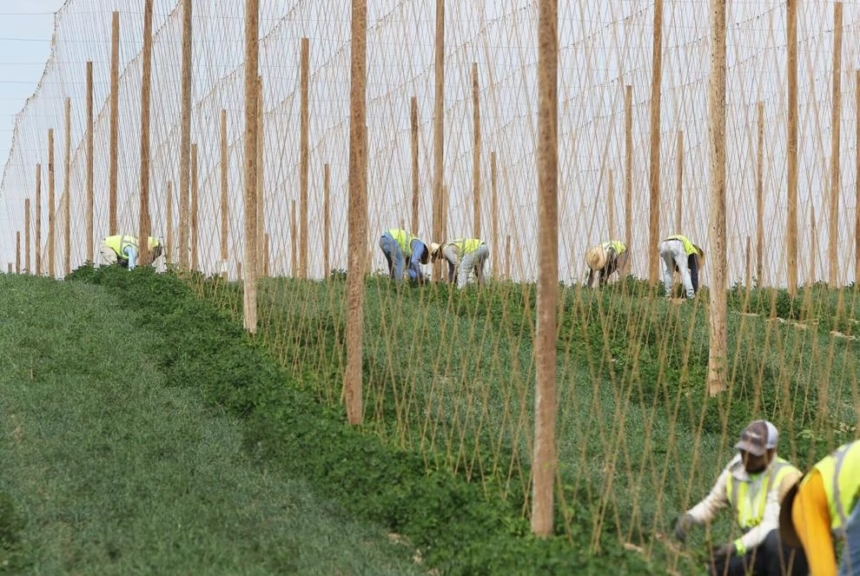Individuals anticipating a relaxation in immigration policies for specific worker categories may need to temper their hopes.
Despite President Donald Trump’s recent statements suggesting possible concessions for certain economic sectors, no modifications to immigration policies are currently being developed to protect agricultural, hospitality, or leisure workers from widespread deportations, according to a Washington Post report released Friday.
The newspaper, citing three sources close to the administration’s immigration policy decisions, indicated that Trump’s Thursday statements at the White House were intended to address industry concerns rather than signal any concrete policy modifications. Reuters news agency independently verified this understanding after reaching out to White House officials.
According to Reuters, Tom Homan, who oversees border security matters within the administration, informed the Washington Post that he had neither been consulted about potential adjustments regarding workers in these sectors nor participated in developing any new policies.
The agricultural and hospitality sectors—which heavily depend on immigrant workforce—had thrown their support behind Trump’s 2024 re-election campaign, anticipating that immigration enforcement would primarily target individuals with criminal backgrounds.
Nevertheless, as the administration proceeds with implementing its campaign pledge to deport undocumented immigrants, even Trump supporters are expressing concerns about the targeting of law-abiding workers, including those at their own businesses.
During Thursday’s White House address, President Trump recognized the effects of his immigration policies on specific economic sectors and hinted at an forthcoming executive order.
“Our farmers are suffering tremendously, and we’re going to have to do something about it… A presidential order will be announced very soon,” he stated from the White House.
He followed up with a post on his social media platform, Truth Social, indicating that the executive order would encompass the hospitality sector, making an indirect reference to the Trump Organization, his family business now operated by his sons.
“Our outstanding farmers, and professionals in the hospitality and leisure industries, are saying our strict immigration policy is depriving them of experienced workers—jobs that are almost impossible to replace. Change is coming!”
Major hotel chains and casino operators have remained silent thus far, declining Reuters’ requests for comment on the president’s statements.
Trump has not yet specified details or provided a timeline for implementing these promised measures.
In a Thursday interview with CNBC, U.S. Secretary of Agriculture Brooke Rollins stated that “all options are being considered,” while indicating that Congressional action might be necessary. She referenced the H-2A visa program, which permits the hiring of temporary or seasonal agricultural workers.
Earlier this week, an immigration enforcement action at an Omaha, Nebraska meatpacking facility resulted in reduced operations due to workforce limitations. Reuters reported that this development has sparked concerns among industry analysts about possible disruptions to America’s food supply chain.
In response to escalating tensions, the United Farm Workers union, alongside California Democratic Senators Alex Padilla and Adam Schiff, issued urgent calls this week demanding the immediate halt of ICE operations targeting agricultural workers.
Previously in April, President Donald Trump had suggested allowing farmers to petition for specific migrant workers’ return—contingent upon their initial departure from the U.S. and subsequent legal reentry.







